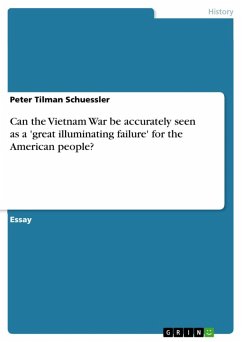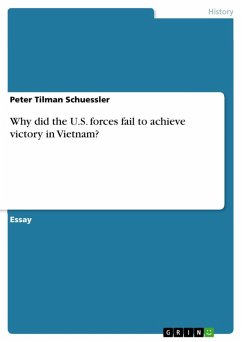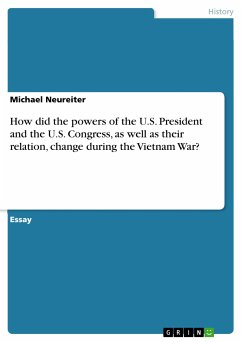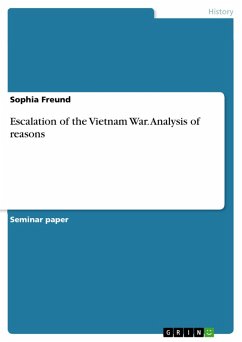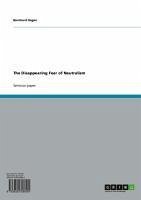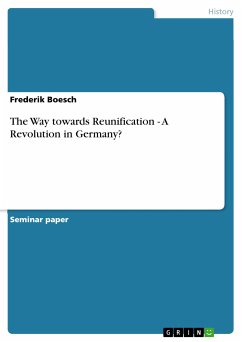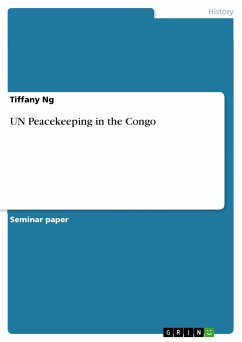Essay from the year 2002 in the subject History Europe - Germany - Postwar Period, Cold War, grade: 17 von 20 (A), University of St Andrews (Department of Modern History), course: America and Vietnam, language: English, abstract: This Essay considers whether or not the Vietnam War can be seen as watershed in American history, and assesses the perceptions of the people to the involvement in this conflict. Furthermore it will examine if America as a country learned from that experience. As it is not possible to explore all the different opinions about this conflict and to discuss all the statements after the withdrawal from Southeast Asia, I will show my point of view in regarding some real actions (meaning everything happening outside the thoughts as speeches, orders, decisions etc.) that have been undertaken by politicians and the U.S. forces. The main weight of this discussion will focus on foreign policy as the effects of this provide clear understanding. Due to the vast scope of this topic I am only able to highlight a few events and developments and thus e.g. the full domestic issue cannot be covered. In the aftermath of this war the opinions about the consequences and lessons were widespread and controversial (Ravenal,1978,p.9); so the NEXIS search found 493 articles containing "lessons of Vietnam," and the 135 pieces of this sort carried in the The New York Times and the The Washington Post contained references to fully 31 separate "lessons"( Melanson,1991,p.7). Different myths and suggestions about the cause of the defeat were discussed although the majority agreed to have Vietnam "Never Again" (Ravenal,1978). Nearly all of the arguments have seen the Vietnam war as a failure: Some judged the U.S. involvement as wrong in itself, others considered the intervention as a "noble cause" (Herring,1981,p.596; Melanson,1991) or blamed the "home front" for the debacle, but even they recognised that the war should have been fought differently. The lessons drawn by the politicians differed totally, but the decisions of all Nixon's subsequent successors were influenced by their attitude towards the legacies of Vietnam. It was a great illuminating failure because in the following years this issue did not vanish. The memories of the Vietnam war remained a part of thinking and so influenced important decisions over the years; it could not been forgotten because in nearly all major U.S. interventions the comparison with Indochina was discussed.
Dieser Download kann aus rechtlichen Gründen nur mit Rechnungsadresse in A, B, BG, CY, CZ, D, DK, EW, E, FIN, F, GR, HR, H, IRL, I, LT, L, LR, M, NL, PL, P, R, S, SLO, SK ausgeliefert werden.

